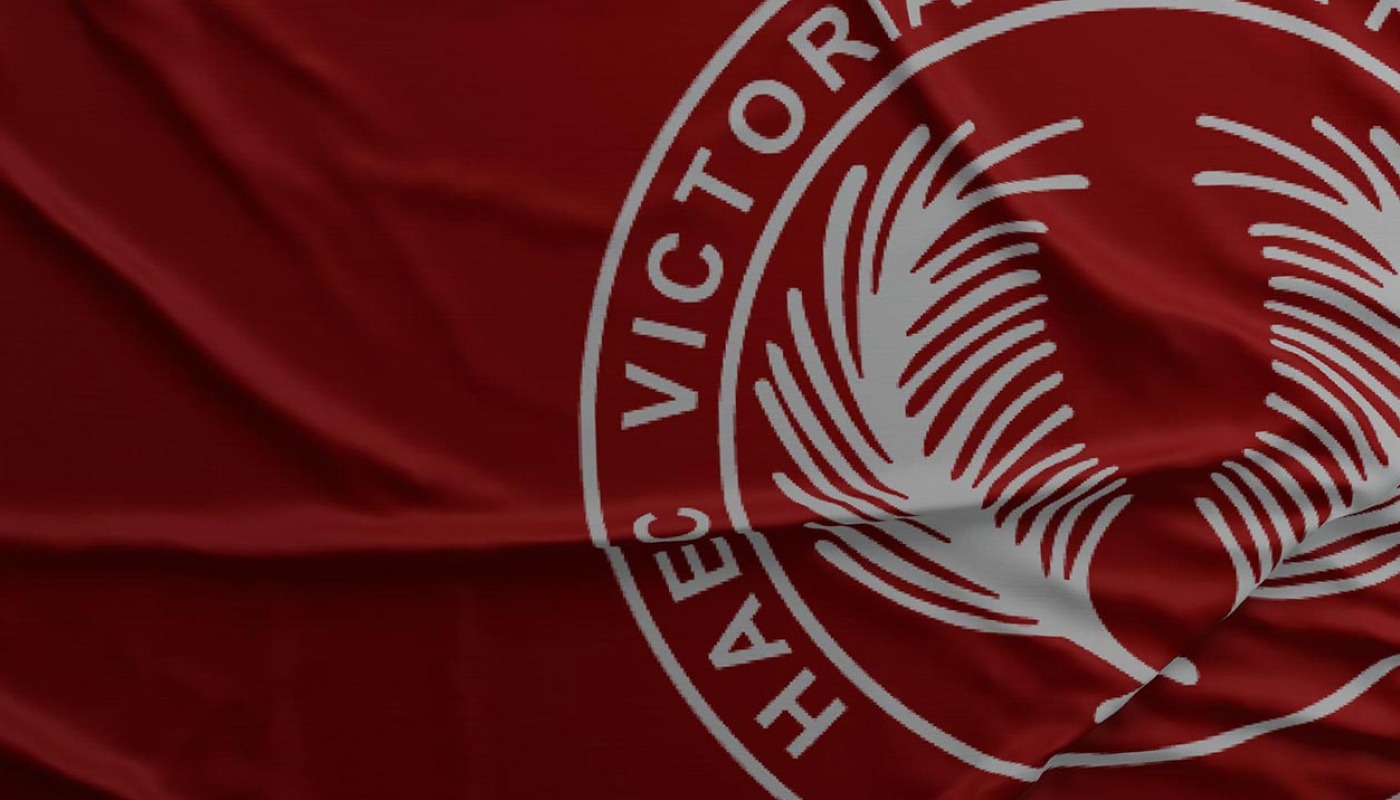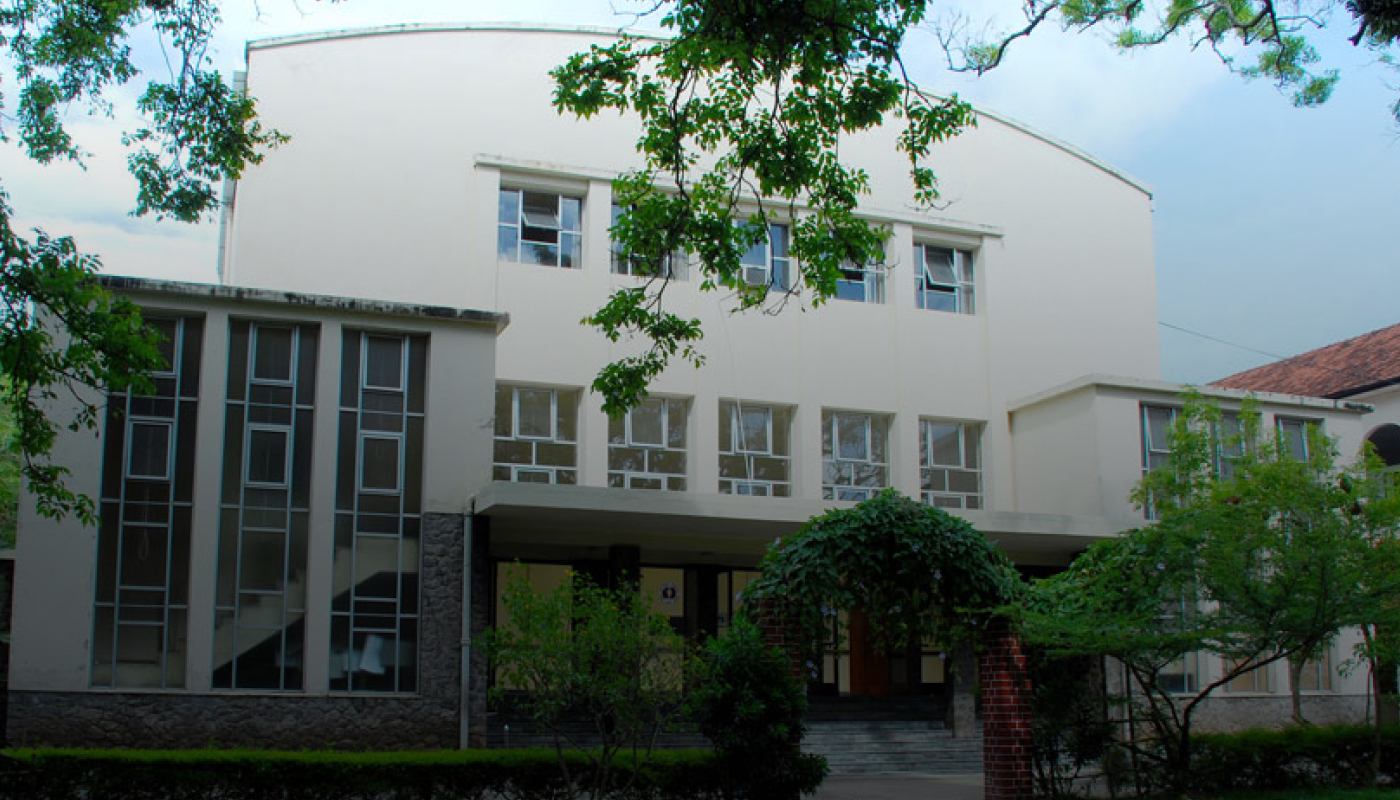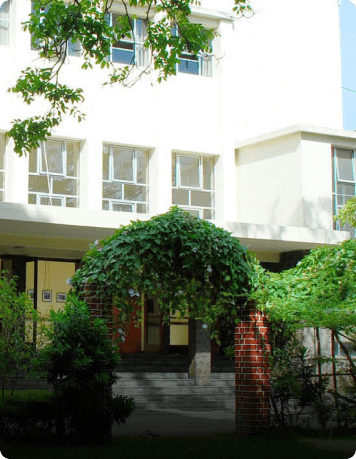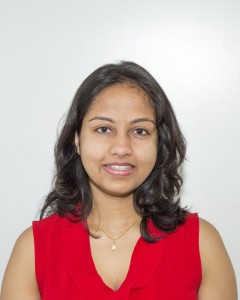
Nipuni Palliyaguru
Scientist
Dr. Nipuni Palliyaguru
Meet The Sri Lankan Scientist Who Helped Detect Gravitational Waves
The scientific community and the world at large was taken by storm last week when an international team of scientists managed to detect gravitational waves, finally confirming renowned physicist Albert Einstein’s century-old theory of General Relativity and opening up a brand new vista of the cosmos. This team, known as the the Laser Interferometer Gravitational-Wave Observatory, or LIGO, contains some of the brightest minds on the planet, and one of them just so happens to be Sri Lankan. Roar caught up with LIGO member, astronomer, and postdoctoral researcher at the Texas Tech University in Lubbock, Texas, Dr. Nipuni Palliyaguru for a quick chat on her contribution to this monumental discovery.
Dr. Nipuni Palliyaguru is part of the LIGO electromagnetic follow up team.
Having joined LIGO as part of her postdoctoral research, about six months ago, Dr. Palliyaguru became involved in a collaborative effort to pinpoint the elusive signal whose existence Einstein had predicted in 1905. “It is a collaboration that consists of many scientists from around the world who are working on different aspects of gravitational wave signals. I am part of the electromagnetic follow-up team of LIGO,” she said.
As to how it works is, in her own words, “the idea is, when a signal comes in, we send out alerts to partner telescope facilities all around the world. Usually, LIGO can’t pinpoint the exact location of the astrophysical system in the sky, because there are thousands of galaxies within the region. So it is important to do an electromagnetic follow-up in order to find out where the signal is coming from, and also to extract additional information about the gravitational wave sources.”
According to Dr. Palliyaguru, team members take turns to be on-call, as these events tend to be unpredictable and can occur anytime of the day. Special care is taken to ensure the validity of a detection, which means there can be no room for false alarm.
“You have to carefully check for instrument status and for glitches in the data to make sure an event is real. Then we decide whether or not to alert the partner astronomers. It is a lot of fun to be on shift, especially when a trigger comes in. Then, because I’m also an astronomer, I got to do the actual follow-up observations for this event,” she said.
A lot has been said about LIGO’s detection and its significance, but as is often the case with popular science (pop-sci), there seems to be a lot of miscommunication surrounding the discovery. For example, a Sri Lankan TV news segment described it as a confirmation of the wave-like property of gravity, in a strictly Newtonian sense of the concept. As a real scientist who was actually part of the project, Dr. Palliyaguru helped shed some light on this.
“Sometimes you have to use analogies to make the information more accessible. We say gravitational waves are ripples in spacetime, kind of like ripples in a pond. Gravitational waves basically distort the space so the time that light takes to travel between two points in space changes. This is the basic principle of any gravitational wave detector. They are called waves because they actually follow the usual wave equation in physics,” she said.
Going into further detail, Dr. Palliyaguru explained that light, as we know it, or more specifically electromagnetic radiation, is generated from accelerating charges (such as electrons). Gravitational radiation is generated from accelerating masses.
“Even my waving hand can produce gravitational waves, but they are very very weak. To get detectable levels of gravitational waves, you need huge masses and for that you have to turn to the sky.”
When she was reading for her PhD at West Virginia University, USA, Dr. Palliyaguru heard what she called a very inspirational talk about efforts to detect gravitational waves using pulsar timing arrays (PTAs). It was then that it hit her: She was in this for life.
“Ever since then, I knew this was what I wanted to work on, for the rest of my career. So I worked on PTAs for about five years for my PhD. Then I got the offer to work with the Texas Tech group as a postdoc on LIGO science. I was thrilled to get the opportunity to continue gravitational wave science with a sophisticated detector,” she said.
It’s not a stretch to say that, even in the 21st century, being a female scientist is not without its drawbacks. Sexism in the STEM (science, tech, engineering and math) fields has been well documented. According to Dr. Palliyaguru, however, things seem to be changing for the better.
“I think women have to work a lot harder to prove themselves. STEM fields require a lot of hard work and sacrifice, which is why women are discouraged from advancing in these careers. But I think this is changing. People are a lot more aware of the situation and I’m fortunate to know many male colleagues who are very supportive and that makes a huge difference,” she said.
A product of the Sri Lankan education system, Dr. Palliyaguru spoke about her days as a student in the island.
“Before any of this, I was a physics major at the University of Colombo and a student at CMS Ladies College in Colombo even before that. So yes, I did go through the local system and had very inspiring physics teachers from a very early stage,” she recalled.
The implications of LIGO’s work are many and will continue to have a profound impact on our understanding of the universe. Needless to say, it is every science student’s dream to be even a small part of something so groundbreaking. Dr. Palliyaguru has some great advice for anyone looking to make that dream a reality:
“I’m still in the early stages of my scientific career, so I’m not sure if I can say a whole lot, but I think perseverance and grit is what it takes. Also, not letting opportunities go to waste. When bad things happen, you cry for a day, and the next day you wake up and pick up from where you left off,” she said.
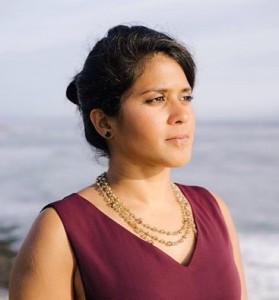
Asha De Vos
Marine Biologist
Asha De Vos
Today was the 116th birthday of the most important institution I have ever belonged to – my Alma Mater Ladies’ College. LC was more than just a school…it moulded me into who I am, it taught me what it meant to belong, it gave me friends who have become family, it encouraged me to become an all rounder, it helped me become confident enough to wander off the beaten path, it filled me with precious memories that I share with some of the most wonderful women I have and ever will meet and most importantly it never expected anything in return. Thank you to our founder’s for their vision and foresight and thank you to all the Ladies of Ladies’ College for flying the flag high and making me so proud to be one of you!
Who Am I?
I am a Sri Lankan marine biologist, ocean educator and pioneer of blue whale research within the Northern Indian Ocean. My journey started when I was just six years old and I have never looked back. Of course, I have encountered many challenges along the way, but I never gave up on my dreams and over time, I have learnt how to turn negatives into positives and how to make them work for me rather than against me. If I had to live my life over, I wouldn’t change a thing.
Because of the lack of Marine Biology degree programs in my island home (ironically! to hear more about this listen to my TEDxMonterey talk or my TEDxVictoria talk), did my BSc (Hons) in Marine and Environmental Biology at the University of St. Andrews, UK, my MSc in Integrative Biosciences at the University of Oxford, UK and my PhD at the University of Western Australia. Throughout these adventures, I kept going back and working in Sri Lanka, eventually setting up The Sri Lankan Blue Whale Project in 2008 (although, I first started writing proposals and working on research ideas back in 2002 after an encounter with some whale poop ~ true story!). Before I started my PhD I was a full blown marine biologist – I was curious about animal behavior.
After I met The Unorthodox Whales, I realized that in order to understand their behavior, I had to understand how the environment influenced them, so I decided to do my PhD in an oceanography lab. Definite steep learning curve but so very valuable. At the end of it all, I was able to publish some interesting research that straddles both the physical and biological sides of my interest that also brought me closer to my ultimate question – what influences blue whales to aggregate off southern Sri Lanka throughout the year, particularly given that it is a high-risk area thanks to the ship traffic that passes through. The other exciting outcome of my PhD is that it makes me the first (and only!) Sri Lankan to have a PhD in marine mammal related research! WOO HOO! But most importantly I hope it shows other Sri Lankans and people from my part of the world that ANYTHING is possible as long as you dream BIG!
Formal bio:
Dr. Asha de Vos is a Sri Lankan marine biologist and educator with a BSc (Hons) in Marine and Environmental Biology from the University of St. Andrews, UK, a MSc in Integrative Biosciences from the University of Oxford, UK and a PhD from the University of Western Australia. Her PhD focused on the ‘Factors influencing blue whale distribution off southern Sri Lanka’ specifically as this area overlaps with one of the busiest shipping lanes in the world. This represents a part of the research she has been conducting on this population since 2008.
Her project ‘The Sri Lankan Blue Whale Project’ forms the first long term study on blue whales within the Northern Indian Ocean. She has published several key research publications on Sri Lankan blue whales, which have led to this population being designated as a species in urgent need of conservation research by the International Whaling Commission (IWC).
The IWC has since invited key Sri Lankan government personnel to participate in whale ship-strike related meetings to gain a broader understanding of the problem. Asha is also an invited member of the IUCN Species Survival Commission’s Cetacean Specialist Group. Her efforts to bring attention to the unusual Sri Lankan blue whales and the threats they face have been showcased internationally by Channel 7 Australia (2010), the BBC (2010), the New York Times (2012), CNN (2012), WIRED UK (2014), the New Scientist (2014) and TED (2015). She is also a guest blogger for National Geographic.
Asha is a TED Senior Fellow, a Duke University Global Fellow in Marine Conservation and was recently selected as a Young Global Leader by the World Economic Forum. She is currently a post-doctoral scholar at the University of California Santa Cruz, where she is working specifically on reducing the problem of ship-strike of blue whales in Sri Lankan waters.
She coined the term ‘the Unorthodox Whale’ based on many years of research on the blue whales around Sri Lankan waters and a realisation that they were simply – different.
Ruwanthi Gajadeera
I am originally from a small village in Ampara called Padiyatalawa, and I moved to Colombo when I was young to attend to Ladies College and, like most of us, after O/Levels, I chose the biology stream, but after failing miserably to understand the subject, I switched to commerce, but after a long discussion with my father and teachers, I realised that I should pursue my passion for art and design. I was selected to study Landscape Architecture at the University of Moratuwa but whenever I went to the library to study, I realised I found myself lost inside fashion magazines such as Vogue, Elle and Harper’s BAZAAR. This is when I took a good look at myself and decided then and there to follow and embrace my love for fashion.
I believe the Shilanthi Abayagunawardana Textile Scholarship as well as the Northumbria University Academic Excellence Scholarship kickstarted my journey in fashion.
It also opened the path for me to represent Sri Lanka at the International Catwalk at the 30thAnniversary of Graduate Fashion Week in London where I managed to secure the runner-up position. I was also selected as a semi-finalist at Redress Design Awards 2021 and managed to secure Silver Award – Textile and Materials at International Designs Awards 2021 for the handloom panels I developed using waste yarn.
In terms of design, my garments pass on an ethos of timelessness by embracing a combination of low tech high tech techniques that express 3Rs in the complete garment lifecycle. I use zero-waste, upcycling, reconstruction techniques that not only produce a low-waste garment but also display the interrelations of these different methods in a cohesive manner. My vision has always been about exploring sustainable fashion avenues and practices. I seek to incorporate my Sri Lankan heritage and sustainable methods of ancient Sri Lankan culture to support slow fashion and to produce eco-friendly garments.
My garments were showcased at International Baltic Ethic Fashion Festival in St Petersburg where I secured First Place in the Eco-Fashion category and Second Runner-up position at Sakura Collection Design Awards in Tokyo.
I competed among 450 designers from 18 countries and regions including Europe, America and Asia and won the Fashion Newcomer Awards at Taipei Fashion Week 2021, which is the oldest official fashion competition in Asia. I am retailing this Champion Collection at PR which was also featured in Vogue Taiwan.
The latest collection I completed is for Redress Design Awards 2022, the world’s largest sustainable fashion design competition. I am one of the ten finalists and my collection feature zero-waste patterns and convertible and reversible garments. This collection was featured in Vogue Hong Kong October Issue. My time at Ladies College was instrumental in moulding me into the woman I am today, capable of appreciating and respecting all cultures.
Journey so far?
SEP 2022
Redress Design Awards
Finalist, International Competition, Redress Limited, HK.
Nov 2021
AOD Grad School Founders’ Scholarship
Scholarship Award, Awarded for International Recognition, AOD Grad School, LK.
NOV 2021
Sakura Collection Design Awards
Second Runner-Up, International Competition, Adventure Japan, Tokyo, JP.
OCT 2021
Taiwan Fashion Design Awards
Champion – Fashion Newcomer Award, International Competition, Taiwan Textile Federation, Taipei, TW.
JUL 2021
International Baltic Ethic Fashion Festival
First Place – Eco-Fashion, International Competition, Etnomoda, St Petersburg, RU.
JUN 2021
Graduate Fashion Week International Catwalk
First Runner-Up, International Competition, Graduate Fashion Foundation, London, UK.
APR 2021
Redress Design Awards
Semi-Finalist, International Competition, Redress Limited, HK.
JAN 2021
International Design Awards
Silver Winner – Textile and Materials, International Competition, Farmani Group, California, USA.
JUN 2021
Graduate Fashion Week International Catwalk
First Runner-Up, International Competition, Graduate Fashion Foundation, London, UK.
DEC 2020
AOD Valedictory Award
Valedictorian, Class of 2020 Academy of Design, Colombo, LK.
FEB 2020
Student Scholarship for Academic Excellence
Scholarship Award, Highest Academic Performance, Northumbria University, Newcastle upon Tyne, UK.
NOV 2019
Shilanthi Abayagunawardana Textile Scholarship
Scholarship Award, Handloom Panel Design, Design for Sustainable Development, Colombo, LK.
Tharanga Goonetilleke, Soprano
Critically acclaimed Soprano, Tharanga Goonetilleke was born and raised in Sri Lanka she has delighted audiences with her beautiful voice since she was in grade school. Today while being frequent performer in the USA Tharanga has also performed to great acclaim in Europe, Canada, India, Uganda, Vietnam and South Korea.
“Tharanga Goonetilleke emphasized Blanche’s naïveté and fears, her passionate searching and her final acceptance with glowing tones and phrasing, both clear and luxurious…..in winning performances filled with emotional truth.” – Judith Malafronte, Opera News
Tharanga made her solo debut as a teenager with the Symphony Orchestra of Sri Lanka (SOSL) in 1998 while she was a student at Colombo’s CMS Ladies’ College, after having won the Concerto Competition organized by the SOSL. At the age of 19 she was recruited to pursue her Bachelor of Music degree in the USA by Converse College (now Converse University), where she was the only recipient of the award ‘Distinction in Opera’ upon graduation upon graduation. She also received a Minor in Biology. Later at Converse’s 125th year anniversary Celebration Tharanga was a recipient of a “Distinguished Alumna” award for her many accomplishments.
“When three female relatives surround Schicchi, helping him to prepare to masquerade as the dead uncle so he can forge a new will, the trio was meltingly gorgeous. Tharanga Goonetilleke, who sang in all three pieces, was a particular standout.” – Anne Midgette, Washington Post
Tharanga became the first Sri Lankan woman and only the 3rd Sri Lankan to be accepted to attend the Juilliard School in New York City. There she obtained her Master of Music degree in Voice and Opera, as well as her Artist Diploma for Opera Studies. While being a student at The Juilliard School she was a recipient of several awards including The Bori grant for language study abroad, Makiko Narumi Memorial prize, Steve Novick grant and the Sing for hope grant. In 2022 Tharanga was invited to be on the faculty of the “Summer with Juilliard” program as part of the voice faculty.
Although her formal education has primarily trained her as a singer, Tharanga is also a well sort after visual artist. To her, both music and the visual arts serve as languages when words alone fail. Her visual art has mostly been exhibited in galleries in New York and New Jersey. She enjoys working collaboratively between these two forms of art. In 2022 She collaborated with the Glimmerglass festival and illustrated the children’s book, The Jungle Book which was a companion to the Opera “The Jungle Book” by Kamala Sankaram and Kelley Rouke. Another recent collaboration of these disciplines has been designing cover art for music albums such as “Home” and “They still want to kills us” both by the label “Bright Shiny things” (BST).
Tharanga’s multifaceted interests and talents have led her to be a trail blazer. In 2015 her journey, story and success also resulted in her to becoming a TED fellow in 2015. As a TED fellow she has given inspirational talks and performances at both TED and several TEDx conferences.
At present, Tharanga continues to perform as an Opera singer, works as a visual artist, runs a private music studio for aspiring musicians, is a faculty member at The Wharton Institute for the performing arts and serves on the board of trustees at the Visual Arts Center of New Jersey. Tharanga currently lives in New Jersey with her husband and two young children.
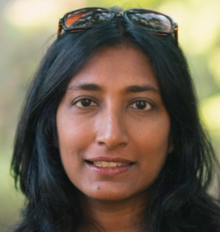
Anjali Watson
Ecologist
Anjali Watson
Managing Trustee / Ecologist
Wilderness & Wildlife Conservation Trust (WWCT)
Anjali Watson has over the past 20 years focused much of her work on wildlife research and conservation. She is the Co-founder and Manager of the Wilderness & Wildlife Conservation Trust, Sri Lanka. Part of a husband and wife zoologist / ecologist team, Anjali together with Dr. Andrew Kittle, have apart from researching the leopard in Sri Lanka worked internationally on other species (primates, sloths, martens, wolves, lions, hyenas) across multiple habitats (Panama Canal island forests, Costa Rica, Canadian boreal forest, Serengeti Tanzania).
Their work was recently recognized internationally when Anjali was selected as a recipient of a coveted Whitley Award which recognizes global conservation leaders.
A member of the International Union for Conservation of Nature’s (IUCN) Species Survival Commissions since 2000, she sits on many government advisory panels and all work is carried out under the relevant government department permissions.
Published internationally within scientific journals, their work has also been widely showcased locally and internationally in all media forms, including a recent CNN report.
The Firsts of the last century
Over the last hundred years our “Old Girls’ have been at the fore front; women who changed the world as we know it by breaking boundaries in fields of government, academia, and every sphere of professional, social, economic and political life.
Pioneers in their respective fields, each of these women dared to be first – challenging convention and stepping outside of their expected roles to create new opportunities for future generations of women while epitomising integrity, efficiency, commitment, and true leadership with charm and charisma.
- The first woman chairperson of a Government Corporation – Glaydys Fernando (Jayawardene)
- The first woman director of the Department Census and Statistics – Imogen Kumarasinghe (Kannangara)
- The first woman Commissioner of Inland Revenue – Nirmalee Kadiragamathamby (Ramachandran),
- The first Sri Lankan woman to hold office as an international civil servant – Pramila Kanangara – Senanayake, Assistant Director of the Planned Parenthood Federation,
- The first woman Government Analyst – Yogaranee Naderaser (Mahesan).
- The first woman engineer – Pramila Sivapakasapillai,
- The first woman Vice Chancellor of a Sri Lankan University – Savitri Ellepola (Goonesekere)
- The first woman Secretary to head a Government Ministry – Dhara Wijesinha (Wijetileke)
